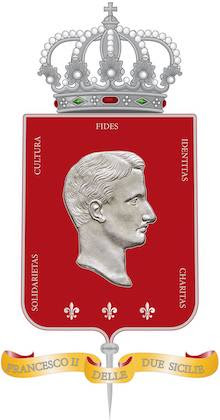 |
| Self-portrait, ca. 1647, Salvator Rosa. Courtesy of the Metropolitan Museum of Art* |
“Don’t let the perfect be the enemy of the good.”
An overly critical reader of mine recently gave me what for over a few of the topics I write about. He absolutely hated my posts on Comic-Con and thought Margot was inappropriate. If he thought my piece about admiring a pretty lady reading Virgil on the subway was bad, I can only imagine how upset he was when he saw Achille Della Ragione wax poetic about Sofia Loren’s breasts (Sofia Loren: La madre di tutte le dive) on Alta Terra di Lavoro (link contains artistic nudity).
While I appreciate his passion and believe everyone’s entitled to an opinion, why can’t he simply enjoy the posts he likes and move past the ones he doesn’t? I don’t mind disagreement; in fact, I usually enjoy it. But there’s a difference between having an opposing view and simply making noise. My critic doesn’t really offer another perspective—just a lot of yelling. It’s passion without purpose. When I read something that doesn't speak to me, I move on. And when I do disagree, I try to discuss it rationally. If I couldn’t, I wouldn’t read—or talk to—anybody. No one is perfect.
Most of the time, I just write about what comes to me. I find inspiration everywhere. It sneaks up on me in the middle of a homily at Mass, in casual conversations, in the books and articles I read, in moments of nostalgia, or in the smallest details of daily life—a sound, a smell, a familiar face.
I try to write every day. Some days it’s new material; other days I Frankenstein together passages from unpublished drafts or long-forgotten notes. A few pieces come from a semi-autobiographical short story I’ve been sitting on for years, reshaped and reborn in different forms.
Still, I worry about burning out—or worse, falling into the paralysis of writer’s block, which has stymied me more than once. Yet beneath that fear lies something deeper: a sense of duty, a responsibility to give shape to the thoughts and experiences that keep surfacing. There’s a growing urgency now—a need to speak my mind before I can’t, whether through illness, apathy, or suppression. I fear not being able to say everything I want to say before it’s too late.
I try to keep things positive (yes, this is me being positive), even when the subjects I touch upon are grave or unpleasant. I also try to keep a sense of variety—both for my own sanity and for the reader’s. I know from experience how quickly I drift away from sites or writers who hit the same note too many times. If I’m bored, the reader will be too.
The awareness of time’s limits has lit a quiet fire in me—a need to do as much as I can, while I still can. After sixteen years of writing, revising, doubting, and starting over, I’m finally learning to trust my own voice and let the ideas come from wherever they may. I don’t think I’ve ever been this prolific.
Writing, for me, has never been just an exercise in style—it’s a way of making sense of the world, of holding the chaos at bay long enough to find a pattern, or at least a meaning. The more I write, the more I realize that this impulse isn’t confined to the page. It mirrors something deeper, a way of seeing and enduring.
Our boisterous friend will undoubtedly read this and either ignore it or assume it’s aimed at someone else. If, as he claims, he knows better than I, I wish he’d show me how it’s done—but I can’t seem to find his website.
Still, I suppose that’s the beauty of it—none of us has it all figured out, but some of us, at least, bother to write it down.
~ By Giovanni di Napoli, October 20th, Feast of St. John Cantius









